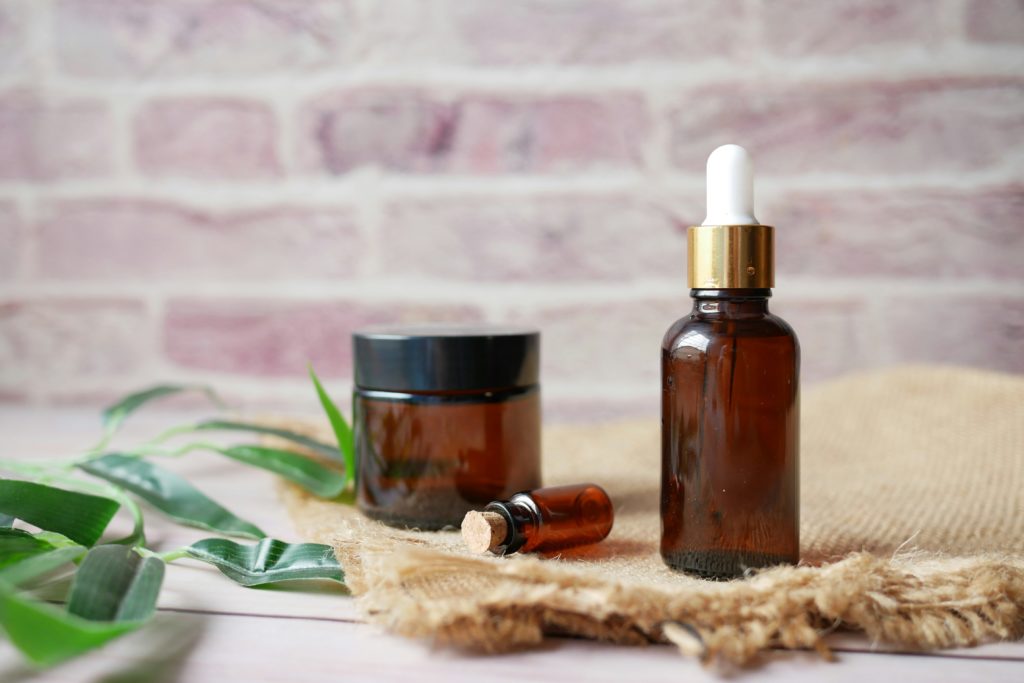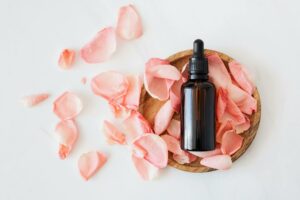Is Castor Oil Worth The Hype? Benefits, Risks, and More
In our quest for health, castor oil has emerged as a treatment option to fix everything from skin health to hair growth. Do these remedies have become quite popular online, but is there any truth to this?

Keep reading to find out everything you need to know about this oil, with science-based information on its benefits, risks, and much more today!
What is Castor Oil?
Castor oil is a vegetable oil used for thousands of years. It comes from the oil of a Ricinus communis plant and needs to be purified to remove any toxins. This oil can be used in meditations, skin care products, and food.
Nutrition Facts
One tablespoon of castor oil contains 120 calories, 14 grams of fat, 0 sugar, fiber, and carbs. It contains vitamin E, omega 6, and omega 9 fatty acids as well.
Potential Benefits
Potential benefits of this oil include everything from improving skin health, reducing acne, moisturizing, hydration, and much more. Others say it is a good way to grow hair and increase eyelash length. Furthermore, some even state it can help with joint pain, arthritis, and wound healing. Are there any studies or research behind these claims though? Let’s find out.
Science-Based Information
Here is all the science-based information you need to know about castor oil. Studies are linked for continence and summarized.
For Hair
While many people claim that castor oil can help hair grow, there is not too much evidence supporting this. Some research papers suggest that properties in castor oil, like ricinoleic acid, can have a hair growth effect. However, as of today, there are no true studies that put this to the test in a trial. Others claim that this oil is good for the prevention of dandruff, but again, there has been little to no evidence to support this.
In fact, some studies have found that the use of castor oil may actually cause hair felting, a condition affecting people with long hair. It causes the hair to become twisted and tangled.
For Skin
Castor oil has moisturizing properties due to ricinoleic acid, a monounsaturated fatty acid. For this reason, this oil is a common ingredient in skincare, from lotions to cleansers to makeup. It can be used on its own to moisturize the skin, though remember it will not add much hydration to the skin. Using it on its own prevents you from putting harmful, irritating ingredients on your skin like some preservatives, dyes, and fragrances.
However, in some cases, pure castor oil can irritate the skin, so it should be avoided in its pure form for some individuals. One small study used castor oil on the eyelids to treat irritation, reddens, and flaking of the skin. Castor oil was not only safe to use around the eyes but improved skin health.
Castor oil tends to be very thick, and many have luck using it with other oils. This includes almond oil, olive oil, rosehip oil, and coconut. When combined with something else, it can become a super hydrating moisturizer for the face and body.
For Wounds
This oil may promote wound healing by keeping the wound in a moist environment. The potassium salt in castor oil also makes it a natural antibacterial, which can help care for wounds. As shown here, the main fatty acid in this oil, ricinoleic acid, has anti-inflammatory and pain-reducing properties. This decrease in inflammation helps support skin health and rejuvenation and can help reduce pain associated with wounds.
It is due to these anti-inflammatory and anti-pain properties that some state its use for treating arthritis. One small study found a positive effect of castor oil, but many had side effects due to its ingestion.
For Internal Use
The only approved medical use of castor oil is as a treatment for constipation. However, it may be less effective than other laxatives. Remember, for internal use, only consume it as recommended by your doctor. The studies related to this oil when indigestion has been few and small. Many of the studies do report side effects though.
Some claim that putting this oil in your belly button causes an absorption that can help detoxify the body and heal you. There is no evidence that states this to be the case.
How to Use Castor Oil
As stated above, this can be used in skincare or haircare products that contain castor oil. It can also be used in its pure form, though there may be benefits to diluting it with other oils. This oil tends to be thick and difficult to use. Common diluting oils include coconut, rosehip, avocado, and jojoba.
Risks
Small studies have found that castor oil may cause contractions and it has been used by medical professionals to try to induce labor. This is why people who are pregnant need to avoid it.
Some people may have an allergic reaction to this oil, which can irritate the skin. Therefore it is important to patch-test the product before using it on the face. Some allergies cause a form of contact dermatitis, a painful rash that develops on the skin. Furthermore, castor oil can be purified from ricin, a substance in the castor bean that is a toxin. It is in the hull of the seed, the outer part that is not used, though it makes it clear that the oil you use should be from a reputable organization.
Common side effects when it is ingested include nausea, vomiting, abdominal pain, thirst, loose stool, and insomnia. Castor oil should only be ingested at the recommendation of your doctor.
The Takeaway
Castor oil, while not the hair-growing champion the internet states it is, is a good option for its moisturizing properties. Some evidence suggests that it may help remote hair growth, but as of now, there are no studies that prove this. Some studies find that castor oil may damage long hair, so it should be used with caution. Evidence does suggest that ricinoleic acid, a monounsaturated fatty acid, is moisturizing and occlusive, keeping skin hydration high.
Remember that health starts from within, so eat well, exercise when you can, and care for mental health. Don’t forget about microbiota health too! Microbiota affects the entire body, from the skin to muscles, to immune and mental health! Get all the resources you need about microbiota health for free here!





